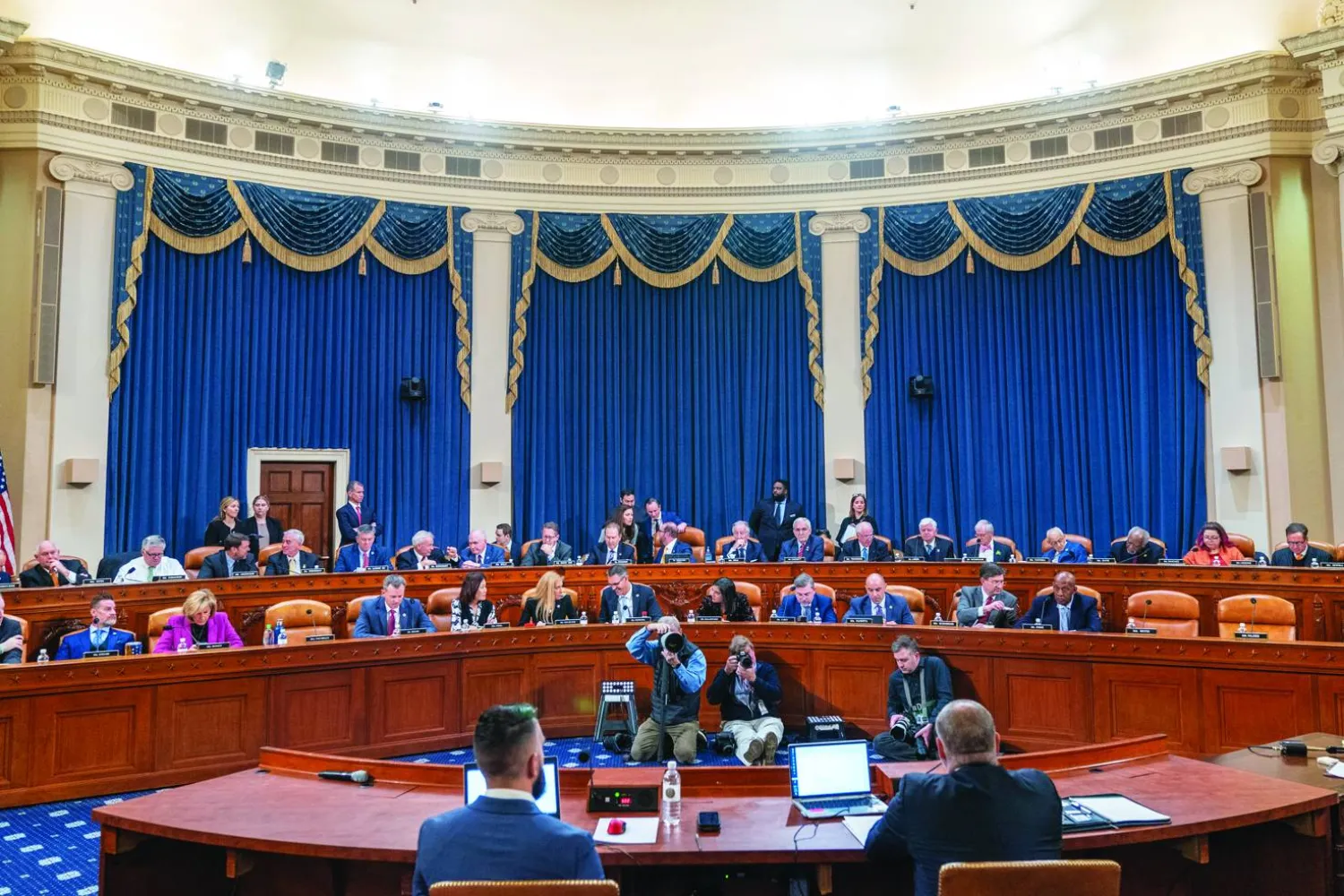All eyes turned Wednesday night to the US House of Representatives which passed a resolution to formally authorize its ongoing impeachment inquiry into President Joe Biden.
Republicans are stepping up their efforts to formalize an impeachment inquiry into the President.
The Republican-controlled chamber approved 221-212 in a party-line vote, directing three House committees to continue their investigations to support Republicans' claims that Biden was directly involved and benefited from his son and brother's foreign business dealings.
With this move, Republicans officially launch a fierce electoral campaign season ahead of the 2024 elections during which they are expected to accuse the US President of corruption and exploiting his position to enrich his family.
“We’re not going to prejudge the outcome of this because we can’t,” House Speaker Mike Johnson told reporters on Tuesday when commenting on the House vote. “It’s not a political calculation. We’re following the law and we are the rule of law team and I’m going to hold to that.”
And while the impeachment efforts target the President, the star of the probe remains his son, Hunter. Republicans seek to link Hunter's business deals with foreign countries to decisions his father made during his service as Vice President between 2008 and 2016.
They are therefore eager to question Hunter over his business dealings, and are also interested in the other cases he faces in US courts related to tax evasion and illegal gun possession.
Hunter Biden, who has described his struggles with drug and alcohol addiction, has also been the subject of a years-long criminal investigation.
He faces federal charges that he lied about his drug use while buying a handgun and separate charges of failing to pay $1.4 million in taxes. He has pleaded not guilty to the gun charges, and his lawyer says he has repaid his taxes in full.
Earlier on Monday, Hunter Biden defied a committee subpoena to testify behind closed doors — saying he would testify only in public.
Last summer, one of Hunter’s former business partners, Devon Archer, told the House Oversight Committee that Hunter repeatedly put his father, then Vice-President, on speaker phone when talking to his partners, so that he could listen to the content of the conversation.
House Votes to Begin Impeachment Inquiry into Biden

Joseph Ziegler, an IRS Agent, seated at left, and IRS Supervisory Special Agent Gary Shapley, right, wait to testify on the Hunter Biden investigation, as the House Ways and Means Committee takes a vote during their hearing, Tuesday, Dec. 5, 2023, on Capitol Hill in Washington. (AP Photo/Jacquelyn Martin)

House Votes to Begin Impeachment Inquiry into Biden

Joseph Ziegler, an IRS Agent, seated at left, and IRS Supervisory Special Agent Gary Shapley, right, wait to testify on the Hunter Biden investigation, as the House Ways and Means Committee takes a vote during their hearing, Tuesday, Dec. 5, 2023, on Capitol Hill in Washington. (AP Photo/Jacquelyn Martin)
لم تشترك بعد
انشئ حساباً خاصاً بك لتحصل على أخبار مخصصة لك ولتتمتع بخاصية حفظ المقالات وتتلقى نشراتنا البريدية المتنوعة







